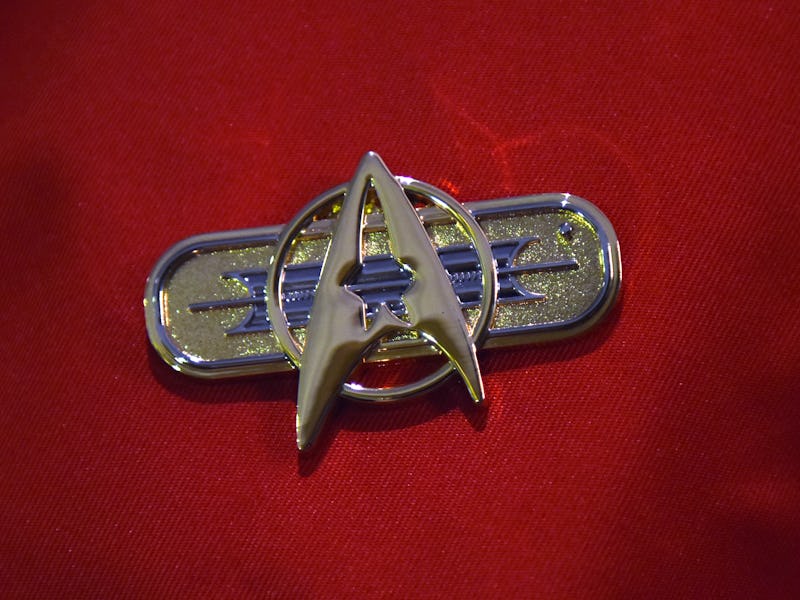Strange New Worlds can reboot Star Trek way better than J.J. Abrams did
Star Trek's next big comeback could finally deliver on a long-overdue promise

Twelve years ago, the J.J. Abrams-directed Star Trek successfully became the safest reboot of all time. It’s an excellent blockbuster, heavy on nostalgia, and it’s quite possibly Abrams’ very best movie — but it also lacks anything resembling a daring message or political agenda.
Having an overtly political or philosophical rumination is not a prerequisite for something to be considered “real Star Trek.” Not everything in Trek is — or should be — a political allegory. But ever since The Original Series, Trek has earned a reputation for trying to project a more inclusive and politically progressive vision of the future.
With the next nostalgia-heavy relaunch — the impending series Star Trek: Strange New Worlds — that vision may actually come to pass.
How Strange New Worlds can boldly go where Star Trek has never gone before
Ever since TOS was canceled in 1969, Star Trek has made its greatest social strides by telling stories that had little or nothing to do with the original cast. Jean-Luc Picard’s Next Generation crew was far more diverse than Kirk’s, and the first Black and female Trek leads happened in the TNG spinoffs Deep Space Nine and Voyager, respectively.
But, after DS9 and Voyager went off the air, and the J.J. Abrams reboot universe took over as the dominant Trek, the franchise seemed to regress, at least on the politically progressive front. Yes, in Star Trek Beyond, Sulu (John Cho) was presented as the first canonically gay on-screen Trek character, but that choice was met by accusations of tokenism, most notably from George Takei himself. It’s only when Discovery debuted in 2017 with two women of color in the lead, and the first LGBTQ characters who were not retcons of previous characters did Trek feel like it was once again living up to the values it supposedly represented.
All of which leads us to the forthcoming Star Trek: Strange New Worlds — a series that is both a spin-off of Discovery and a serious retcon of The Original Series simultaneously.
The opening of “The Cage,” the first very white version of Star Trek.
In Strange New Worlds, the three leads — Number One (Rebecca Romijn), Captain Pike (Anson Mount), and Spock (Ethan Peck) — are all played by white actors. It’s weirdly in line with the way the first Star Trek pilot episode, “The Cage,” looks.
In that episode, the canonical “first” appearance of Pike, Spock, and Number One, there’s basically close to zero people of color on the Enterprise. George Takei wasn’t cast as Sulu until the second pilot “Where No Man Has Gone Before,” and Nichelle Nichols wasn’t cast as Uhura until filming began on the first regular episode in production (though 10th aired), “The Corbomite Maneuver.”
Strange New Worlds producer Henry Alonso Myers has joked that Strange New Worlds is “the longest pilot-to-series pickup in the history of television,” since Strange New Worlds is, in theory, based on the failed pilot episode “The Cage.” It’s a good joke. But had we actually gotten a series version of Trek based on “The Cage,” it would have been the most whitebread Trek yet.
Spock, Captain Pike, and Number One get ready to explore...well, you know.
Luckily, Strange New Worlds is poised to drop its The Original Series baggage, in at least three meaningful ways. For one, Discovery basically already retconned the 23rd Century era of Starfleet with more diversity and inclusivity than anything we saw in The Original Series. Turns out, Prime Georgiou was a much bigger deal than either Pike or Kirk.
For another, the episodic nature of Strange New Worlds means there are more opportunities for political allegories and self-contained stories about social issues. In a recent interview, Anson Mount said the new series is “founded on the big idea of the week.” This means that instead of telling a giant season-long arc tethered only to a variety of science fiction plot points, Strange New Worlds can tell more specific stories. Historically, if Star Trek has a bigger quantity of stories, the chances that some of those stories are politically charged are much, much higher.
What’s more, the supporting cast is very diverse, a detail that proves the Strange New Worlds production team knows they’re in a diversity deficit with Spock, Pike, and Number One.
L-R: Babs Olusanmokun, Christina Chong, Celia Rose Gooding, Jess Bush, Melissa Navia
We literally don’t know anything about who these supporting actors are playing, but there’s not one single white male in the group. Of course, on its own, the diversity of the cast doesn’t mean the show will be progressive, but it’s a very good sign. It also means that the bridge of this USS Enterprise won’t look anything like the whitebread crew of “The Cage.”
Discovery has done a good job at creating the most diverse and inclusive Star Trek to date. But, what Strange New Worlds might do is arguably a bit more powerful. It could put all of that progressiveness back onto the Enterprise.
As The Next Generation, Voyager, and Deep Space Nine proved, Star Trek tended to be the most progressive when the franchise was also moving forward into its own future. Discovery started to change that tradition, and populate Trek’s past with more diversity. Now, with Strange New Worlds, the franchise could bring it all home, one self-contained episode at a time.
Strange New Worlds is set to debut on Paramount+ in 2022.
This article was originally published on